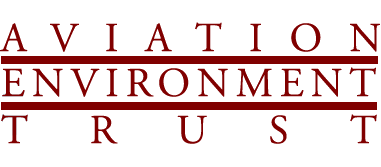

The Government states that there should be “a balance between the local and national economic and consumer benefits of night flights” and measures to protect people from the associated aircraft noise. The Department for Transport’s 2021 consultation on future night noise policy provided little or no evidence of economic benefits, although York Aviation published a report, commissioned by industry, in which it set out a number of claims about the economic value of night flights to airlines, airports, and the wider economy. To assess these findings, the Aviation Environment Trust commissioned a study from New Economics Foundation (NEF). NEF found that York Aviation’s assessment fails to take into account critical economic impacts in the domains of noise, greenhouse gases, and outbound tourism. Furthermore, “York Aviation’s estimates of business productivity impacts are dramatically overstated, out of step with the latest academic research, and contain methodological vulnerabilities which have not been sensitivity tested”, NEF found. For the full report, click here.
Following on from its 2016 work, the Trust continues to support ongoing efforts to better understand links between aircraft noise and public health. In March 2019, the Trust co-sponsored a major London conference on aircraft noise, and were delighted that Public Health England, the Civil Aviation Authority, the Department for Transport and the Independent Commission on Civil Aviation Noise (ICCAN) all participated and shared their views.
One of the issues that emerged from the event was that the evidence cut-off for the World Health Organisation’s 2018 community exposure noise guidelines was 2014. The Trust has begun work to better understand how the evidence base may have changed since then, focusing on the studies that have been completed between 2015 and 2020 as well as identifying those that are underway and will deliver results in the coming years.
The Trust is also continuing to support NGO participation in the ANCO and RISTANCO projects being undertaken by Leicester University with funding from the Medical Research Council and NIHR, and support from Public Health England.
Aircraft Noise and Cardiovascular Outcomes (ANCO) aims to conduct the first comprehensive assessment of cardiovascular (CVD) impacts of aircraft noise near major airports in the UK, by carrying out both small-area and individual-level (cohort-based) analyses
Reduced noise Impacts of Short-Term Aircraft Noise and Cardiovascular Outcomes (RISTANCO) is investigating whether day-to-day changes in aircraft noise levels affect risk of heart attack and stroke in the population living near airports and provide information on whether relief periods may have beneficial effects on cardiovascular disease.
To contribute to work initiated by the UN’s International Civil Aviation Organisation (ICAO), the Trustees are supporting NGO involvement in an international process aimed at setting long-term climate goals for the sector compatible with achieving no more than a 1.5oC temperature rise. This project, which began in January 2019, is expected to last until ICAO’s Assembly in September/October 2022.